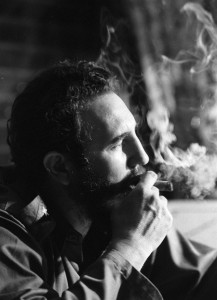Fidel Castro, Cuban Revolutionary Who Defied U.S., Dies at 90
< < Go Back
Mr. Castro brought the Cold War to
the Western Hemisphere, bedeviled 11 American presidents and briefly pushed
the world to the brink of nuclear war.
Fidel Castro, …, died Friday. He was 90.
His death was announced by Cuban state television.
In declining health for several years, Mr. Castro had orchestrated what he hoped would be the continuation of his Communist revolution, stepping aside in 2006 when he was felled by a serious illness. He provisionally ceded much of his power to his younger brother Raúl, now 85, and two years later formally resigned as president. Raúl Castro, who had fought alongside Fidel Castro from the earliest days of the insurrection and remained minister of defense and his brother’s closest confidant, has ruled Cuba since then, although he has told the Cuban people he intends to resign in 2018.
Fidel Castro had held on to power longer than any other living national leader except Queen Elizabeth II. He became a towering international figure whose importance in the 20th century far exceeded what might have been expected from the head of state of a Caribbean island nation of 11 million people.
He dominated his country with strength and symbolism from the day he triumphantly entered Havana on Jan. 8, 1959, and completed his overthrow of Fulgencio Batista by delivering his first major speech in the capital before tens of thousands of admirers at the vanquished dictator’s military headquarters.
He wielded power like a tyrant, controlling every aspect of the island’s existence. He was Cuba’s “Máximo Lider.” From atop a Cuban Army tank, he directed his country’s defense at the Bay of Pigs. Countless details fell to him, from selecting the color of uniforms that Cuban soldiers wore in Angola to overseeing a program to produce a superbreed of milk cows. He personally set the goals for sugar harvests. He personally sent countless men to prison.
But it was more than repression and fear that kept him and his totalitarian government in power for so long. He had both admirers and detractors in Cuba and around the world. Some saw him as a ruthless despot who trampled rights and freedoms; many others hailed him as the crowds did that first night, as a revolutionary hero for the ages.
More From The New York Times:




